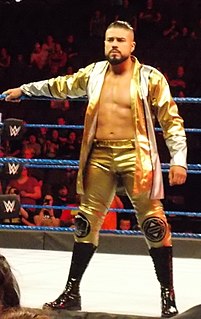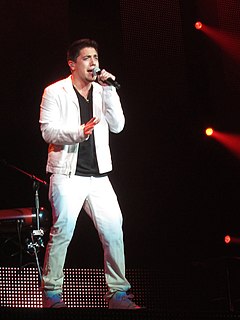A Quote by Andy Serkis
The thing is, I don't just take roles because they're performance capture.
Related Quotes
Motion capture is exactly what it says: it's physical moves, whereas performance capture is the entire performance - including your facial performance. If you're doing, say, martial arts for a video game, that is motion capture. This is basically another way of recording an actor's performance: audio, facial and physical.
My belief about performance capture is that it's a technology which allows actors to play extraordinary characters. But from an acting perspective, I've never drawn a distinction between playing a conventional, live action character and playing a role in a performance capture suit. And from a purely acting point-of-view, I don't believe there should be a special Oscar category because I think it sort of muddies the waters in a way.
You never know when you're taking a job, ever... but you try to take good scripts. That's all you can do as an actor - take the best thing available. Even then, it's not [really] in your control. Certainly not in film and TV, because there are so many other elements. You just have to take control of your own performance.
I would say, when you're playing video games that involve competition against somebody else, you have to be able to understand what's going on and react in the fastest time possible to either - if it's a capture the flag game, capture the flag, if you're trying to take out the other team, take them out. Same thing in basketball.



























